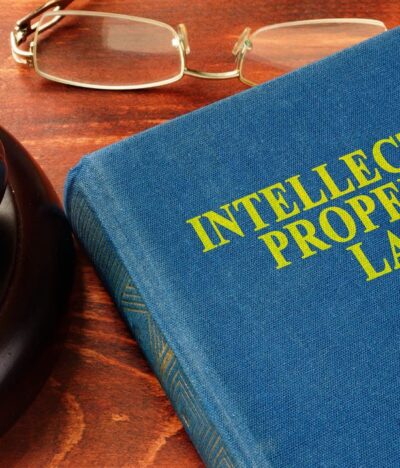In the best of situations, owners or partners in a company and shareholders help each other. Shareholders buy into the company, and the owners or partners operate the business in a manner that is profitable for everyone involved. Like any relationship, though, disputes between the shareholders and the partners may arise. Sometimes, it is fairly easy to resolve these disputes, particularly if there are documents governing how they are to be resolved. Unfortunately, other times, these disputes are incredibly complex and sometimes, involuntary dissolution is the only answer.
Involuntary dissolution should only be used as a last resort, as it means the business will no longer operate and none of the parties will continue to profit from it. Still, it is important that partners and shareholders alike know what is involved in involuntary dissolution.
What is a Deadlock?
A deadlock occurs when shareholders cannot agree on important matters and those disagreements result in the corporation not being able to conduct business. Shareholder votes typically require a majority vote, meaning that more than half of the shareholders must vote the same way. A deadlock occurs when the shareholders are evenly split 50/50 on any given vote. If a vote requires a super-majority, that is 75% or more of the voting shares, a deadlock can also occur. In either of these circumstances, an involuntary dissolution may occur if the shareholders no longer receive any benefit from the company.
A 50/50 Shareholder Deadlock
A 50/50 shareholder deadlock has very serious consequences for a company, but there are ways to prevent them from occurring, and resolving them when they do. The first is with a solid shareholder’s agreement. Shareholder agreements can include deadlock provisions that dictate how they are to be handled. Due to the fact that shareholders agree to these clauses, they can have many different variations because people may agree on anything. The most common deadlock clauses included in shareholder agreements are as follows:
-
Russian roulette deadlock clause: These clauses allow agreeing shareholders to buy out the other shareholders. The other shareholders can do this as well, which can result in the price of the buyout increasing until a final price is reached.
-
Arbitration clause: Arbitration involves bringing in an outside party and allowing them to make the final decision to resolve the dispute.
-
Chairperson clause: When more than two shareholders are involved, one is elected as the Chairperson and will make the vote that counts as the final decision.
-
Auction clause: An auction deadlock clause is similar to a Russian roulette deadlock clause. The difference is that no one has to agree on a price but instead, shareholders will make bids to buy out the other shareholders.
-
Liquidation clause: The most extreme type of clause, this one closes the business and is really only practical when a business is already failing.
If a shareholders agreement does not contain a clause to resolve a dispute, there are only two options left to resolve the disagreement. One party can either concede to the other party, or everyone involved can take the matter to court.
Board of Directors Deadlock
When there is a Board of Directors deadlock, the matter may go to court and a judge may dissolve the corporation in certain situations. To do this, the following four scenarios must apply:
-
There are an even number of directors on the board,
-
The directors are in disagreement about a serious management issue, and
-
It is impossible to conduct business because of the deadlock, or property of the corporation is in danger of being lost, and
-
The shareholder’s votes are also divided equally and so, they cannot resolve the Board of Directors deadlock.
Any time a person is able to start the process of legally dissolving a company, they can file a verified complaint in the same county as the corporation’s principal executive office. When there is no principal executive office, complaints can be filed in Sacramento County. Once the court hears the case, a judge can either dissolve the company or order the appointment of a provisional director.
Who Can Start the Process of Involuntary Dissolution?
Any of the following parties can proceed to dissolve a corporation:
-
50% or more of the corporation’s directors,
-
Shareholders that hold a minimum of one-third of a) the total number of outstanding shares, b) the outstanding common shares, or c) the equity of a corporation,
-
Any shareholder of a statutory close corporation, or
-
Any person authorized to dissolve the company through the articles of incorporation
The process of involuntary dissolution starts when any of the above parties file a verified complaint in the county of the principal executive officer of the corporation. These proceedings are extremely complicated and anyone that wishes to involuntarily dissolve a corporation should speak to a California commercial lawyer before filing their complaint.
The Importance of Shareholder Agreements
Contracts are important in any business, but any company that includes shareholders should also have shareholder agreements in place. A shareholder agreement should outline how shareholder disputes will be handled. These agreements can prevent an involuntary dissolution, which again, should only be used as a last resort. Shareholder agreements are sometimes lengthy and complex legal documents. Any shareholder who has a dispute should speak to a lawyer that can review this contract and advise on the best manner in which to proceed.
Benefits of Shareholder Agreements
No corporation should operate without first having a shareholder agreement in place. These agreements bring many benefits, including:
-
Dispute resolution: It is shocking the number of corporations that dissolve due to disputes. A properly drafted shareholder agreement will help companies mitigate effective strategies for dispute resolution that is tailored to a certain business.
-
Unanimous privileges: One of the biggest benefits of shareholder agreements is that they can help maintain accord between the majority and minority shareholders. An agreement can prevent majority shareholders from abusing their power by defining key issues in a contract that require unanimous support of the shareholders.
-
Adaptable: Shareholder agreements outline the relationship between different types of shareholders, as well as the process for adding or removing shareholders from the corporation. This can help make the key management of the company more flexible while also avoiding litigation.
-
Transfer restriction: A shareholder’s agreement can include a shareholder buyout agreement, or a buy-sell agreement that limits the transfer of shares between important members of the organization. Without this type of clause, a departing shareholder could transfer their shares to anyone without facing legal ramifications for doing so.
To reap the full benefits of a shareholder’s agreement, it must be drafted properly. A commercial lawyer can draft an agreement that will help prevent disputes from forming, and that will stipulate how to resolve them when they do, saving the company and everyone within it a great deal of trouble.
Settling the Dispute is Always Better Than Litigating
Like many civil disputes, those involving shareholders do not have to go to the courtroom. Litigation is time-consuming and typically expensive, as well. Once litigation is complete, it is not uncommon for all parties to feel as though they have lost something, with no clear winner rising from the fray. Instead, settling the matter is always the best course of action, when it is possible.
One way for the parties to settle their dispute is through mediation. During mediation, the parties will each sit down with a mediator. The mediator is not there to offer legal advice, but only to facilitate communication and compromise so the parties can reach an agreement on their own. Mediation has many benefits for all parties. Not only does it keep the matter out of court, but it also gives the parties involved more control over the outcome. When the dispute cannot be resolved during mediation, litigation may be necessary.
Involuntary Dissolution Through the Courts
When a dispute does go to court, the matter is heard before a judge only without a jury being present. A judge can make a decision early in the case during a hearing, and before the case even reaches trial. If a judge makes the decision to dissolve the business, the board of directors for the company will liquidate the assets of the business and wrap up any final affairs. All of this is done under the supervision of the court.
The court can order the business to be sold through piece-meal liquidation, or as a going concern. Once all matters have been tended to, the court will declare the dissolution of the corporation and a copy of the order is filed with the California Secretary of State.
When a Buy-Out is Possible
In some cases, fewer than 50% of the shareholders begin the involuntary dissolution. When this is the case, the majority shareholders or the corporation may buy out the minority shareholders, which will prevent the company from dissolving. The court will determine the price the company is to be sold for and will use three appraisers to determine the price at the liquidation value for the date of the filing of the complaint. Once the appraisers value the business, the corporation and shareholders are left with that price and cannot do anything about it. This is another reason mediation is often a better choice.
Ancillary Claims for Damages
Involuntary dissolution cases become even more complex when the partners are involved with disputes among themselves. Each partner may have a claim for damages against the other, particularly when there are accusations of embezzlement or fraud. These claims can cause the case to become even more expensive and time-consuming, and they are also decided by a jury, not a judge alone. Lastly, the partners may become so fixated on their own claim for damages that they lose sight of separating themselves with as little loss as possible.
Our California Commercial Lawyer Can Help with Your Dispute
If you are a shareholder who is involved in a deadlock dispute and believe involuntary dissolution is necessary, our Santa Monica commercial lawyer at Klein Law can help you through the process. Call us today at (310) 295-2261 to schedule a consultation and to learn more about how we can help.





